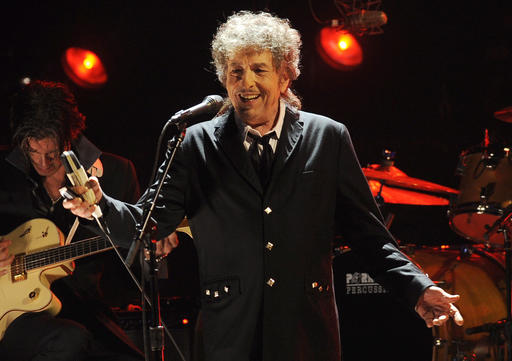
World-renowned folk singer and songwriter Bob Dylan, a Minnesota native, received the Nobel Prize in Literature on Thursday, Oct. 13 for his poetic expressions through American music.
Dylan’s nomination redefined the criteria for literature, sparking debate on whether song lyrics can have the same literary value as poetry or novels. His music explored the social issues of the 1960s and 1970s, like war and civil rights, while engaging the Baby Boomer audience through folk, rock, blues and pop genres.
Dylan’s music was “electrifying and empowering (to) those who listened to it,” St. Thomas music professor Christopher Kachian said.
By discussing social issues, Dylan “not only galvanized a generation, our nation and the rest of the world to our political action, but that he did it in a way that wasn’t overt — that was subtle, that wasn’t obvious, that was suggestive,” Kachian continued.
Professor Andrew Scheiber said his English students are exploring Dylan’s songs in a poetry collection. Recently the students read and discussed “The Times They Are a-Changin’” and “Tangled Up in Blue.”
“His great insight, I think, was to recognize that these very … commonly held musical forms had the potential to be vehicles for personal and poetic expression,” Scheiber said.
Kachian, who teaches guitar to students at the university, also said that Dylan’s music is frequently played and discussed in his class.
Kachian described Dylan’s music as “instantly digestible by anyone who hears it.” He continued that Dylan “retained a simplicity to his style” that allows the listener to really focus on the lyrics.
“Dylan’s music is very highly repetitive. He uses very thin textures and the barest minimum musical context so it exists only as a support for his poetry, which is limitlessly creative,” Kachian said.
By pairing simplistic folk music arrangements with “complex” lyrics that do not have a straightforward interpretation, Kachian explained that Dylan’s music has a “kind of disparity (that) is not common.”
Despite some that have argued that Dylan is undeserving of the prize, Kachian said he understands why the Nobel Committee for Literature chose the folk singer.
“His lyrics were … always empowering and challenging his listeners and readers to come up with their own interpretation and make their own decisions. This I find to be really at the crux of why the people in Sweden gave him this award,” Kachian said.


